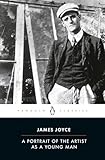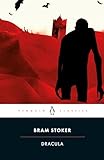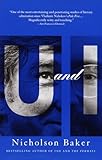1.


 Many of my favorite books – Dracula, The Rings of Saturn, A Portrait of the Artist as a Young Man – came to me as assigned reading. Even more than specific titles, I inherited my favorite authors from professors: Nicholson Baker, Harryette Mullen, Turgenev, George Saunders.
Many of my favorite books – Dracula, The Rings of Saturn, A Portrait of the Artist as a Young Man – came to me as assigned reading. Even more than specific titles, I inherited my favorite authors from professors: Nicholson Baker, Harryette Mullen, Turgenev, George Saunders.
This literary bestowal carries on into adulthood as I seek my favorite authors’ favorite authors. At HTMLGIANT, Blake Butler started a broad compendium of David Foster Wallace’s favorite works, encompassing books he blurbed, books assigned on his syllabus, books mentioned in interviews and in passing. It is a nourishing list, a place to turn when I think about what I should read next.
But my road with the recommendations of my favorite authors has been unpaved and rocky.
 I devoured U and I, Nicholson Baker’s endearing, humorous volume on John Updike. I loved that he read the copyright page of each Updike book, tracing where essays or excerpts had been previously published. U and I is about Updike, yes, but it is more about Baker wrestling with Updike’s impact on a personal level. Early in the book he lays it out: “I was not writing an obituary or a traditional critical study, I was trying to record how one increasingly famous writer and his books, read and unread, really functioned in the fifteen or so years of my life since I had first become aware of his existence…”
I devoured U and I, Nicholson Baker’s endearing, humorous volume on John Updike. I loved that he read the copyright page of each Updike book, tracing where essays or excerpts had been previously published. U and I is about Updike, yes, but it is more about Baker wrestling with Updike’s impact on a personal level. Early in the book he lays it out: “I was not writing an obituary or a traditional critical study, I was trying to record how one increasingly famous writer and his books, read and unread, really functioned in the fifteen or so years of my life since I had first become aware of his existence…”
Because the book is about Baker not about Updike, I found it easy to like. Baker recounts the 125th anniversary party for The Atlantic where Tim O’Brien tells him that he and Updike golf together: “I was of course very hurt that out of all the youngish writers in the Boston area, Updike had chosen Tim O’Brien and not me as his golfing partner. It didn’t matter that I hadn’t written a book that had won a National Book Award, hadn’t written a book of any kind, and didn’t know how to golf.”


 And so, under Baker’s tutelage, I read John Updike. More accurately, I tried to read Updike, tried and tried. Rabbit, Run. Pigeon Feathers. The Poorhouse Fair. I didn’t finish any of them, I barely started them. I would have scoured Couples for the passage where Updike compares a vagina to a ballet slipper – which Baker mentions – if I could have gotten through the second chapter.
And so, under Baker’s tutelage, I read John Updike. More accurately, I tried to read Updike, tried and tried. Rabbit, Run. Pigeon Feathers. The Poorhouse Fair. I didn’t finish any of them, I barely started them. I would have scoured Couples for the passage where Updike compares a vagina to a ballet slipper – which Baker mentions – if I could have gotten through the second chapter.
After quoting his own mother and Nabokov, Baker tells me, “There is no aphoristic consensus to deflect and distort the trembly idiosyncratic paths each of us may trace in the wake of the route that the idea of Updike takes through our consciousness.” Updike is not an idea that is tracing its way – neither trembling nor idiosyncratic – through my consciousness. There is no Updike boat leaving a wake in the waves of my mind like a yacht leaving Cape Cod for the Vineyard.
Rather than accept that Baker and I – being of different eras and different genders – have different taste, I concluded that I must be intellectually and creatively deficient; I am a bad reader. I was disappointed in myself for disappointing the Nicholson Baker in my mind, shaking his bearded head, tut-tutting at me: Poor girl, she’ll never understand.
 A few months ago I picked up The Anthologist and started it, in the midst of other selections. (When the book came out last September, I actually drove twenty miles to Marin to see Baker read. I was the youngest member of the audience by thirty years. But I am afraid to buy a book at a reading, and petrified of the prospect of having an author sign the book. I could make a fool of myself as Baker did when asking Updike to sign a book in the early 80s.)
A few months ago I picked up The Anthologist and started it, in the midst of other selections. (When the book came out last September, I actually drove twenty miles to Marin to see Baker read. I was the youngest member of the audience by thirty years. But I am afraid to buy a book at a reading, and petrified of the prospect of having an author sign the book. I could make a fool of myself as Baker did when asking Updike to sign a book in the early 80s.)
Then a couple weeks ago I received a mass email from a writer I know about how he was reading The Anthologist, and I felt the urge to pick it up again. He even said, “I’m really loving The Anthologist.”
I haven’t read everything by Baker, but I’ve read a bunch and enjoyed it on my own; yet, his authoritative praise weighs more than my own evaluation.
2.
Recently in Maine in a used bookstore (that was also the bookseller’s refurbished garage), I stumbled on three of Carson McCullers’ books for $1 each. (In case you are wondering, and you should be wondering, I was not close to Nicholson Baker’s home in Maine, but further up the coast near E.B. White’s former home, near the county fair where Fern bought Wilbur.) The cover of the tattered McCullers paperback proclaimed “One of the finest writers of our time” from The New York Times. I couldn’t recall exactly where I’d heard her name, but it was vaguely familiar. I bought all three.
 I started The Ballad of the Sad Café and she drew me into her vivid, textured Southern world. Her descriptions are precise ideas: “The hearts of small children are delicate organs. A cruel beginning in this world can twist them into curious shapes.”
I started The Ballad of the Sad Café and she drew me into her vivid, textured Southern world. Her descriptions are precise ideas: “The hearts of small children are delicate organs. A cruel beginning in this world can twist them into curious shapes.”
She commands the reader and directs me what to do: “See the hunchback marching in Miss Amelia’s footsteps when on a red winter morning they set out for the pinewoods to hunt… See them working on her properties… So compose from such flashes an image of these years as a whole. And for a moment let it rest.” This second-person imperative jumped out of the smooth, poetic narrative, but it fit like a nest on a tree. McCullers is unafraid to acknowledge you and make you do what she thinks you should. Yet she maintains authorial distance and control by refraining from the first person while directing your attention like a gentle guide: “Now some explanation is due for all this behavior,” she opens an aside on the nature of love. She then elides authority by saying, “It has been mentioned before that Miss Amelia was once married.”
 Even before I’d finished the novella, though, I dug around online to verify my delight. Didn’t I read somewhere that David Foster Wallace liked her? Did I remember a retrospective on her in the TLS? No, I didn’t, I was mistaken. Try as I may, the highest compliment I found was from Graham Greene who said, “Miss McCullers and perhaps Mr. Faulkner are the only writers since the death of D. H. Lawrence with an original poetic sensibility.” Now, don’t get me wrong. Graham Greene is fine, but I didn’t even finish The End of the Affair, and he is nowhere near my top ten. From whom did I inherit McCullers?
Even before I’d finished the novella, though, I dug around online to verify my delight. Didn’t I read somewhere that David Foster Wallace liked her? Did I remember a retrospective on her in the TLS? No, I didn’t, I was mistaken. Try as I may, the highest compliment I found was from Graham Greene who said, “Miss McCullers and perhaps Mr. Faulkner are the only writers since the death of D. H. Lawrence with an original poetic sensibility.” Now, don’t get me wrong. Graham Greene is fine, but I didn’t even finish The End of the Affair, and he is nowhere near my top ten. From whom did I inherit McCullers?
My Internet searching revealed some critical acclaim (in the Modern Library Revue column on The Millions, for one) and she is mentioned in the same breath as Saul Bellow, Flannery O’Connor, W.H. Auden, and Tennessee Williams, each time with a different, equally flattering comparison.
But I was disappointed. In myself? In McCullers? In other authors who did not love her as I am growing to?

 I suppose if I can find an author and grow to love them outside of a direct inheritance, maybe, too, I could reject select elements of my more obvious literary heritage. Hesitantly, I have begun to dismiss other favorites’ favorites. When a former student of his published David Foster Wallace’s syllabus, I promptly downloaded the PDF. As I read the list, I was very self-assured: I’d been meaning to read Waiting for the Barbarians! I loved the Flannery O’Connor story he assigned (“A Good Man is Hard to Find”). He boldly included young contemporary writers like Aimee Bender and Sam Lipsyte. But Silence of the Lambs. Really? I would not follow him there. Maybe I am only disadvantaging myself. Silence of the Lambs may be the literary masterwork that could forever change my outlook on literature and fiction, just like Updike was supposed to.
I suppose if I can find an author and grow to love them outside of a direct inheritance, maybe, too, I could reject select elements of my more obvious literary heritage. Hesitantly, I have begun to dismiss other favorites’ favorites. When a former student of his published David Foster Wallace’s syllabus, I promptly downloaded the PDF. As I read the list, I was very self-assured: I’d been meaning to read Waiting for the Barbarians! I loved the Flannery O’Connor story he assigned (“A Good Man is Hard to Find”). He boldly included young contemporary writers like Aimee Bender and Sam Lipsyte. But Silence of the Lambs. Really? I would not follow him there. Maybe I am only disadvantaging myself. Silence of the Lambs may be the literary masterwork that could forever change my outlook on literature and fiction, just like Updike was supposed to.
Where I formerly swallowed recommendations whole, I now cull through them – not exactly on my own but in a more independent fashion. I find books, I do not just receive them. Or, I try to.
I am not a bad reader nor am I intellectually and creatively deficient, or, if I am, it is not because I do not like John Updike but for entirely different reasons.








